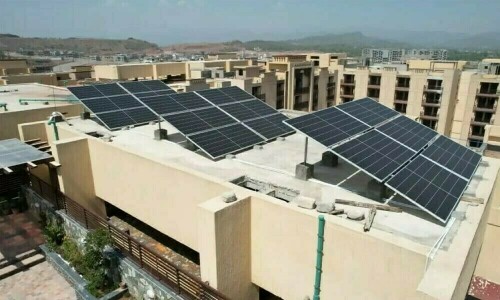Government Proposes Tax on Imported Solar Panels in Budget 2025-26
The Pakistani government has presented its budget proposal for the fiscal year 2025-26, which includes the imposition of an 18% sales tax on imported solar panels.
Finance Minister Muhammad Aurangzeb stated during his budget address to the National Assembly that this proposed tax aims to stimulate the growth of the domestic solar industry.
This announcement comes at a time when Pakistan is experiencing a significant surge in solar energy adoption. According to the Pakistan Economic Survey 2024-25, released recently, the country’s net-metering capacity had reached 2,813 megawatts (MW) by March 31, 2025.
Key Figures from Pakistan Economic Survey 2024-25
The net-metering capacity has increased by over 300MW compared to the previous fiscal year, where capacity was approximately 2,500MW, as reported in NEPRA’s State of the Industry Report 2024.
This increase of 300MW in net-metering capacity is largely due to a considerable reduction in solar panel costs and the financial benefits that net-metering provides to consumers.
However, the proposed 18% tax in the FY26 budget could potentially drive up the cost of solar panels.
Despite the economic challenges facing Pakistan, the nation is undergoing a green energy transformation, becoming a prominent market in the global solar sector.
The Global Electricity Review 2025, conducted by the UK-based energy think tank Ember, reveals that Pakistan imported 17 gigawatts (GW) of solar panels in 2024, establishing itself as a leading solar energy consumer.
The report, released earlier this year, noted, “Solar energy is now so affordable that substantial markets can emerge very quickly, as demonstrated by Pakistan in 2024.”
The report further explains that “High electricity costs, resulting from costly agreements with private thermal power plants, have driven homeowners and businesses in Pakistan to install rooftop solar systems as a way to obtain cheaper power.”
Recent Research Findings
Recent research highlights that China’s solar panel exports to Pakistan exceeded those to several G20 countries, with imports surpassing 16 gigawatts (GW) in 2024 alone.
A report by Renewables First, titled ‘Leader of One or Leader of None – China’s Choice for Clean over Coal in Pakistan,’ indicates that Pakistan imported over 39GW of solar panels in the past five years, primarily from China.
These imports are “sufficient to surpass three-quarters of Pakistan’s total installed national generation capacity,” the report stated.
The report concludes that “Pakistan may be the first to face this conflict between traditional coal energy and accessible solar power on such a large scale, but it will not be the last. If China handles this effectively, it will not only facilitate Pakistan’s energy transition but also establish itself as the architect of a new energy paradigm for the Global South, one that is rapid, equitable, and genuinely transformative.”



Comments (0)
No comments yet. Be the first to comment!
Leave a Comment